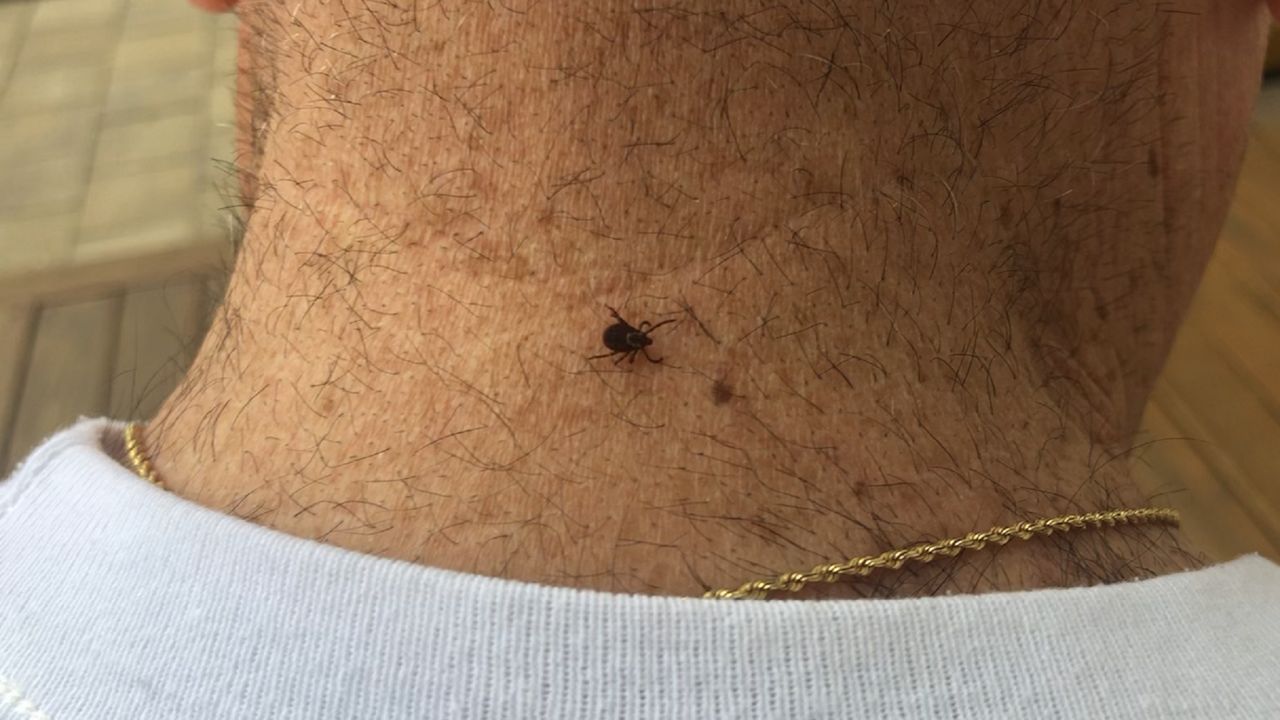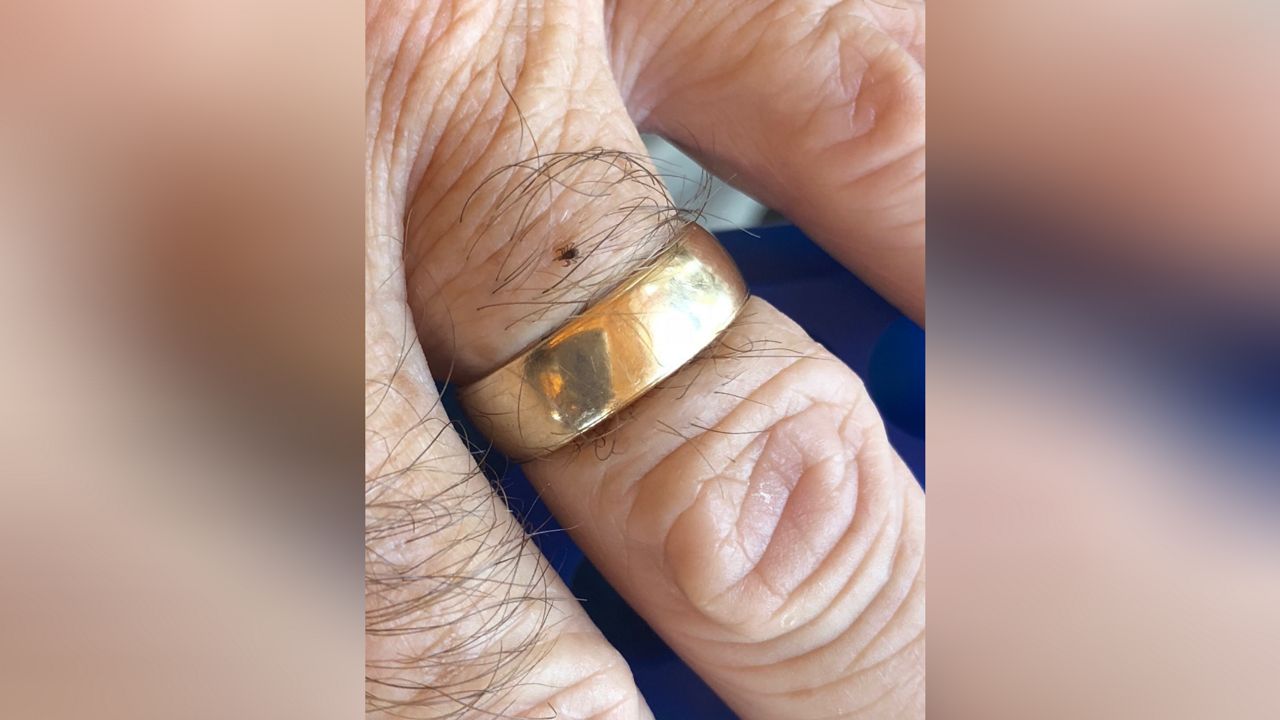CLEVELAND — Glen Needham is sort of a tick expert.
"I have been studying ticks for more than 40 years. I'm retired now so now I just do tick stuff for fun," said Needham, an associate professor emeritus at The Ohio State University.
And by fun he means:
"I have been out collecting ticks. I just can't help myself. Anyway, I collected some dog ticks last weekend and in about 15 minutes I picked up, I don't know, 25 dog ticks," he said.

For Needham, spring starts when he can pick ticks.
"Kids go to the zoo to see the giraffe and the elephant and, you know, the showy stuff but ticks are just as amazing as an organism because, well, for example, an American dog tick, which is our most common one, it can live for up to three years without eating anything or drinking water," Needham said.
Needham said they're the perfect pet.
"This would be the perfect tick to take with you, perfect companion to take to Mars because you don't have to feed it or give it water and you can just take it out periodically and pet your tick and put it back," he said.
He can explain why they're prone to carrying diseases.
"Here's an organism that can live for a really long time without having to feed on anything and so they end up being a reservoir for disease in nature," he said.

Needham also knows how to stay safe from getting ticks.
"I recommend people tuck their pants into their socks so the tick is on the outside of their clothing. And wear light-colored clothing so you can see the ticks if they're on you," he said.
And what you should do if you get a tick on you or get bitten by a tick.
"You need to pull the tick off with tweezers or your fingers. And then a good thing to do is save the tick," he said.
Needham said you can save the tick by putting it in a container, something he said is the considerate thing to do if other people are in the area.
"If you have a container, you could just throw them into a container like a ziplock baggie or a medicine container or something like that. Or if you have tape just stick them to tape. But that's being considerate," he said. "It's sort of like people wearing masks, you know, a considerate thing to do right now but the considerate thing to do (would) be not throw your ticks back onto the ground or into the parking lot because the next person who pulls up may be unaware that there's some risk there from the ticks in the grass and on the pavement."
Needham also said you should make sure you have flea and tick items for your dogs so they won't get them and bring them home.


